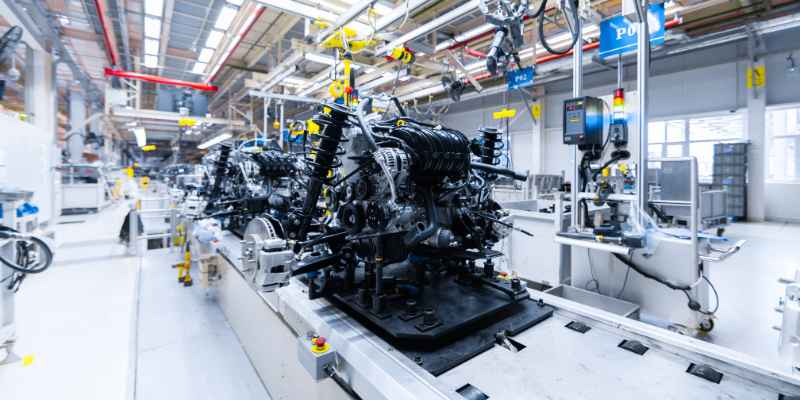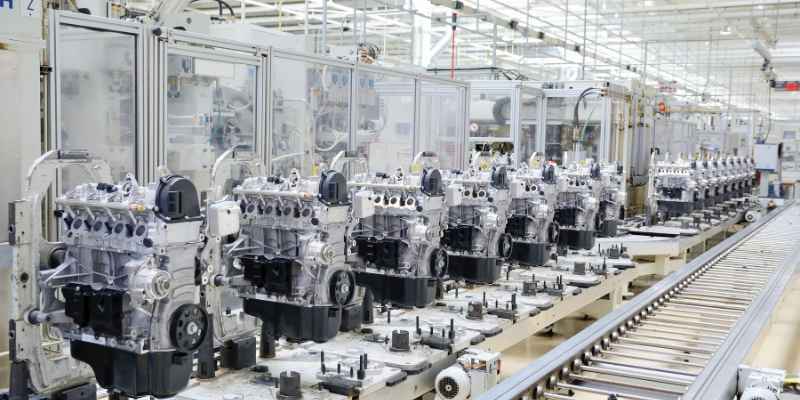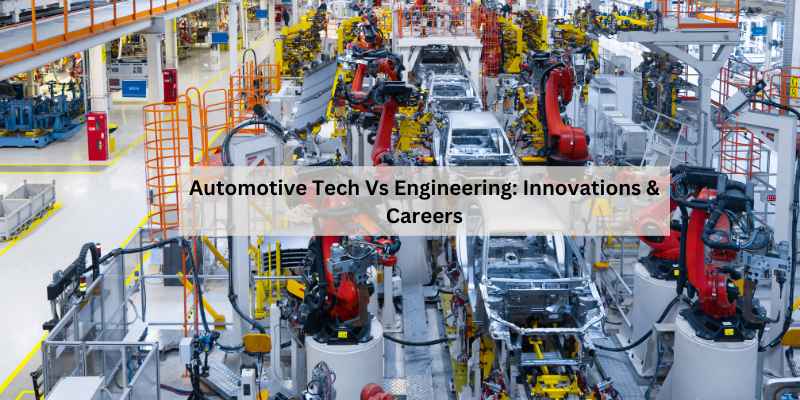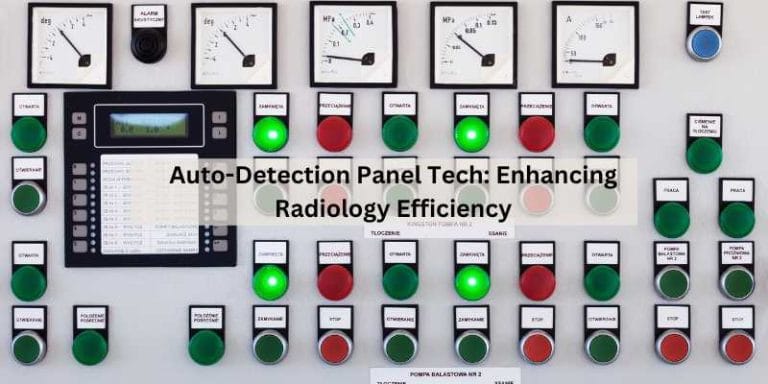Automotive Tech Vs Engineering: Innovations & Careers
Automotive technology and engineering are two distinct fields, with the former focusing on the design and production of automobiles, while the latter covers a broader range of mechanical systems and devices. Automotive technology is a rapidly changing and evolving industry that requires specialists with specific skills and knowledge.
On the other hand, engineering education is more focused on design, development, and theoretical analysis. While both fields require a deep understanding of mechanics and technology, they offer different career paths and opportunities. We will explore the differences between automotive technology and engineering, the job requirements, salaries, and advantages and disadvantages of each field.
Introduction To Automotive Tech And Engineering
Automotive technology and engineering are two distinct fields, though they share similarities. While automotive technology focuses on the practical application of automotive systems, engineering is more theoretical and concentrates on design and development.
The Evolution Of Automotive Technology
Automotive technology has undergone significant advancements over the years, revolutionizing the way vehicles are designed, manufactured, and operated. From the invention of the first automobile to the development of electric and autonomous vehicles, the evolution of automotive technology continues to shape the future of transportation.
Key Distinctions Between Engineers And Technicians
Engineers and technicians play crucial roles in the automotive industry, with distinct responsibilities and skill sets. While engineers focus on designing and innovating automotive systems, technicians are hands-on professionals who troubleshoot, repair, and maintain vehicles to ensure optimal performance.
Diving Into Automotive Technology
Delving into Automotive Technology involves understanding the distinction between Automotive Tech and Engineering. While Mechanical Engineering encompasses a wide range of systems, Automotive Engineering is a subset focused specifically on vehicle design and production. Similarly, technicians focus on hands-on work, while engineers are responsible for design and development.
Core Aspects Of Automotive Tech
Automotive technology encompasses design, development, and production of vehicles.
- Focuses on enhancing vehicle performance and safety.
- Includes areas like engine systems, electrical components, and materials.
- Integration of advanced software and sensors for smart functionalities.
Emerging Trends In Vehicle Technology
Modern vehicle technology is rapidly evolving to meet changing demands.
- Integration of AI for autonomous driving capabilities.
- Development of electric and hybrid vehicles for sustainability.
- Enhanced connectivity features for seamless user experience.
Exploring Automotive Engineering
Automotive engineering is a fascinating field that combines technical knowledge with creativity to design and develop innovative automotive solutions. From improving fuel efficiency to enhancing safety features, automotive engineers play a crucial role in shaping the future of transportation.
The Role Of Engineers In Automotive Design
Automotive engineers are responsible for the conceptualization, design, and development of various automotive components and systems. Their expertise encompasses a wide range of disciplines, including mechanical, electrical, and materials engineering. They collaborate with cross-functional teams to ensure that vehicles meet performance, safety, and regulatory standards.
Breakthroughs In Automotive Engineering
Recent advancements in automotive engineering have revolutionized the industry, leading to significant breakthroughs in areas such as electric and autonomous vehicles, lightweight materials, and advanced driver-assistance systems (ADAS). These innovations are driving the transformation of traditional automotive design and manufacturing processes, paving the way for a more sustainable and technologically advanced future.
Education Paths Compared

When considering a career in the automotive industry, it’s essential to understand the different education paths available. Whether you’re interested in becoming an automotive technician or an engineer, each path has unique academic requirements and degree programs. Let’s compare the education paths for aspiring technicians and engineers.
Academic Requirements For Technicians
Aspiring automotive technicians typically pursue technical education through vocational programs or community colleges. These programs often require a high school diploma or equivalent for admission. While formal education is important, hands-on training and experience are also crucial for technicians. Many technicians complete apprenticeships or on-the-job training to gain practical skills in automotive repair and maintenance.
Degree Programs For Aspiring Engineers
Individuals aspiring to become automotive engineers often pursue bachelor’s degrees in mechanical engineering, automotive engineering, or a related field. These degree programs typically require a strong foundation in mathematics, physics, and engineering principles. Additionally, some universities offer specialized automotive engineering programs that focus specifically on vehicle design, development, and manufacturing. Many aspiring engineers also pursue internships or co-op opportunities to gain practical experience in the automotive industry.
Career Trajectories In Focus
When it comes to the automotive industry, individuals pursuing careers in automotive technology and engineering can expect diverse and rewarding career trajectories. Let’s delve into the opportunities and career paths available in both sectors.
Opportunities For Technicians In The Industry
Technicians in the automotive industry play a crucial role in diagnosing, maintaining, and repairing vehicles. They are equipped with hands-on skills and specialized knowledge, making them invaluable assets in the sector.
Opportunities for technicians include:
- Working in automotive repair shops, dealerships, or specialty shops
- Specializing in areas such as engine repair, electrical systems, or air conditioning
- Pursuing certifications to advance their careers and increase earning potential
Engineering Careers In The Automotive Sector
Automotive engineering offers diverse career paths for individuals with a passion for innovation and problem-solving. From designing cutting-edge vehicles to enhancing safety features, engineers play a pivotal role in shaping the future of transportation.
Engineering careers in the automotive sector encompass:
- Vehicle design and development, focusing on aerodynamics, performance, and fuel efficiency
- Research and development of advanced safety technologies and autonomous driving systems
- Collaboration with cross-functional teams to integrate emerging technologies into vehicle platforms
- Exploring opportunities in electric and hybrid vehicle development to support sustainable transportation initiatives
Skill Sets And Specializations
When it comes to the automotive industry, both automotive technicians and engineers play crucial roles, each with their own distinct skill sets and specializations. Let’s delve into the technical skills for automotive technicians and the engineering expertise in the automotive field.
Technical Skills For Automotive Technicians
Automotive technicians are equipped with a diverse set of technical skills that are essential for diagnosing and repairing vehicles. These skills include:
- Proficiency in using diagnostic tools and equipment
- Understanding of vehicle electrical systems
- Knowledge of engine performance and maintenance
- Expertise in performing routine maintenance tasks
- Ability to interpret technical manuals and schematics
Engineering Expertise In The Automotive Field
Automotive engineers, on the other hand, possess specialized engineering expertise that is tailored to the automotive industry. Their skill set encompasses:
- Advanced knowledge of vehicle design and development
- Proficiency in utilizing engineering software for modeling and simulation
- Understanding of automotive materials and manufacturing processes
- Expertise in vehicle performance optimization and efficiency
- Ability to conduct complex engineering analyses and tests
The Financial Aspect
Comparative Analysis Of Salaries
The average salary of automotive technicians is lower than that of engineers due to differences in educational requirements and job responsibilities.
Investment In Education And Tools
Engineers typically require a higher initial investment in education and tools compared to automotive technicians, as their field demands specialized knowledge and advanced equipment.
Pros And Cons Of Each Path
Choosing between a career in Automotive Technology and Engineering can be a pivotal decision for individuals passionate about automobiles. Each path offers unique benefits and challenges that aspiring professionals need to consider.
Benefits Of A Career In Automotive Technology
- Hands-on experience: Gain practical skills in repairing and maintaining vehicles.
- Specialized training: Focus on automotive systems and technology.
- Quick entry into the workforce: Shorter training periods compared to engineering.
- Job diversity: Opportunities in dealerships, repair shops, and automotive companies.
Challenges Faced By Automotive Engineers
- Complexity: Designing intricate automotive systems requires advanced knowledge.
- Continuous learning: Keeping up with evolving technologies and industry trends.
- Regulatory compliance: Ensuring designs meet safety and environmental standards.
- Team collaboration: Working with diverse professionals in cross-functional teams.
Crossing The Bridge Between Tech And Engineering
Navigating the terrain between Automotive Tech and Engineering involves understanding the distinct focuses of each field. Automotive Tech delves into vehicle systems, while Engineering encompasses broader mechanical design and production. Bridging these realms requires a blend of specialized knowledge and innovative problem-solving approaches.
Transitioning From Technician To Engineer
Embarking on the journey from being a technician to an engineer is a significant shift that requires advanced skills and knowledge.
The Value Of Interdisciplinary Knowledge
Interdisciplinary knowledge is crucial in bridging the gap between automotive tech and engineering, ensuring a holistic understanding of complex systems.
The Future Of Automotive Careers
The automotive industry is undergoing a significant transformation, driven by advancements in technology and engineering. As the sector embraces autonomous and electric vehicles, professionals in the automotive field are presented with new challenges and opportunities. In this blog post, we will explore the impact of autonomous and electric vehicles on automotive careers and discuss how individuals can adapt to the changing automotive landscape.
Impact Of Autonomous And Electric Vehicles
- Autonomous vehicles are revolutionizing the automotive industry by integrating cutting-edge technologies such as artificial intelligence and advanced sensors.
- Career Implications: As autonomous vehicle technology continues to evolve, there will be an increased demand for professionals with expertise in software development, machine learning, and robotics within the automotive sector.
- The shift towards electric vehicles is reshaping the automotive landscape, with a focus on sustainable and eco-friendly transportation solutions.
- Career Implications: The rise of electric vehicles creates opportunities for individuals skilled in battery technology, electrical engineering, and sustainable energy systems, paving the way for new roles in the automotive industry.
Adapting To The Changing Automotive Landscape
- Professionals in the automotive industry must embrace continuous learning to stay abreast of technological advancements and industry trends.
- Upskilling: Individuals can enhance their career prospects by acquiring expertise in areas such as data analytics, cybersecurity, and connected car technologies.
- As automotive technology becomes more complex, collaboration between professionals from diverse backgrounds such as engineering, computer science, and design becomes essential.
- Multidisciplinary Approach: Embracing a multidisciplinary approach fosters innovation and enables the development of holistic solutions in the automotive domain.
Conclusion: Navigating The Automotive Industry
Navigating the automotive industry, the debate between automotive tech and engineering is pivotal. While automotive technology delves into specific vehicle design and production, mechanical engineering encompasses a broader mechanical system spectrum. Both fields offer unique advantages and career pathways within the ever-evolving automotive sector.
Choosing The Right Career Path
When it comes to navigating the automotive industry, choosing the right career path can be crucial. If you are interested in designing and developing new technologies, then pursuing a career in automotive engineering may be the right choice for you. On the other hand, if you are more interested in hands-on work and diagnosing and repairing vehicles, then automotive technology may be the better fit.
The Importance Of Continuous Learning And Adaptation
No matter which career path you choose, continuous learning and adaptation are crucial in the ever-evolving automotive industry. As new technologies and advancements are made, it is important to stay up-to-date with the latest developments and learn new skills to remain competitive in the job market. This could mean pursuing additional education or certifications, attending conferences and workshops, or simply keeping up with industry news and trends.
| Advantages of Automotive Engineering | Advantages of Automotive Technology |
|---|---|
| – Opportunities to work on cutting-edge technologies | – Hands-on experience diagnosing and repairing vehicles |
| – Higher earning potential | – Faster entry into the job market |
| – Opportunities for career advancement into management positions | – More flexibility in choosing a specific area of focus (e.g. collision repair, performance tuning, etc.) |
In conclusion, choosing between automotive engineering and technology ultimately comes down to personal interests and career goals. Both paths offer unique advantages and require continuous learning and adaptation to remain competitive in the industry. By carefully considering your strengths and interests, you can navigate the automotive industry and find a fulfilling career path.

Frequently Asked Questions
Is Automotive Technology The Same As Mechanical Engineering?
Automotive technology is a subset of mechanical engineering, focusing on designing and producing automobiles specifically.
What Is The Difference Between Automotive Engineering And Technology?
Automotive engineering focuses on designing and manufacturing vehicles, while automotive technology specializes in the evolving industry of vehicle specialization. Engineering involves design and construction, while technology is more focused on specialization in the automotive field.
What Is The Difference Between A Mechanic Engineer And A Technician?
A mechanic engineer has a university degree and designs products, while a technician works on them without design responsibilities.
Can A Mechanic Be Called An Engineer?
No, a mechanic cannot be called an engineer. They have different skill sets and responsibilities. Mechanics focus on hands-on work, while engineers are involved in design and development.
Conclusion
In the dynamic world of automotive tech and engineering, the distinctions are clear but the lines often blur. Both fields offer diverse opportunities and challenges. Understanding the differences can guide individuals towards the right career path. Whether your passion lies in design and development or hands-on technical work, both areas offer exciting prospects for the future.







